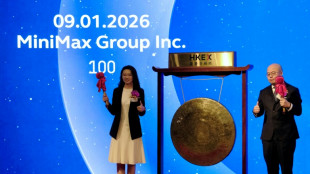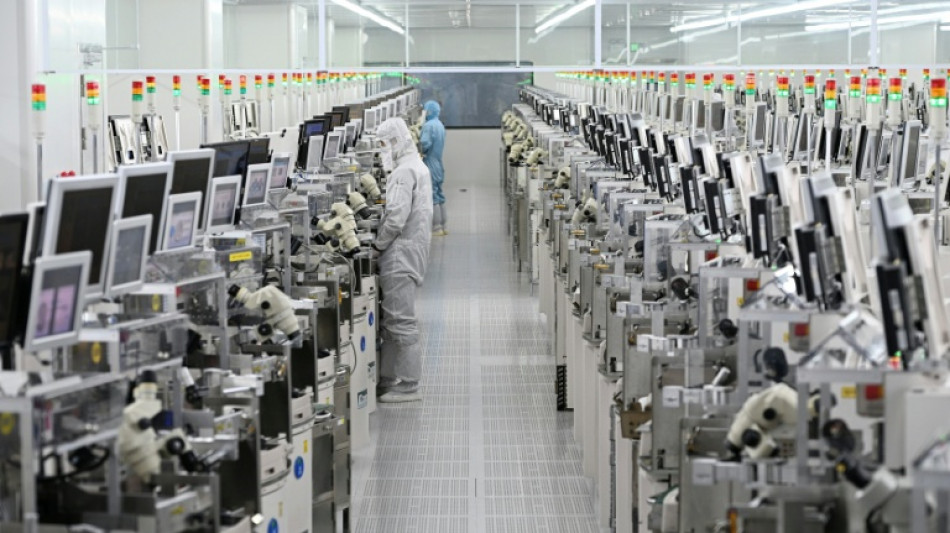
-
 Rams survive Panthers scare to advance in NFL playoffs
Rams survive Panthers scare to advance in NFL playoffs
-
Rallies across US after woman shot and killed by immigration agent

-
 Egypt dump out holders Ivory Coast as Nigeria set up AFCON semi with Morocco
Egypt dump out holders Ivory Coast as Nigeria set up AFCON semi with Morocco
-
Rosenior salutes 'outstanding' start to Chelsea reign

-
 Maduro loyalists stage modest rally as Venezuelan govt courts US
Maduro loyalists stage modest rally as Venezuelan govt courts US
-
Byrne late penalty fires Leinster into Champions Cup last 16 after 'ding-dong' battle

-
 Rosenior makes flying start as Chelsea rout Charlton in FA Cup
Rosenior makes flying start as Chelsea rout Charlton in FA Cup
-
Rallies across US against shooting of woman by immigration agent

-
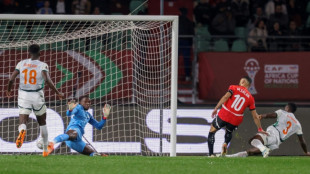 Salah closer to AFCON glory as Egypt dethrone champions Ivory Coast
Salah closer to AFCON glory as Egypt dethrone champions Ivory Coast
-
O'Neil ends 'crazy three days' with Strasbourg cup canter

-
 Mitchell leads Cavs over T-Wolves
Mitchell leads Cavs over T-Wolves
-
O'Neil ends 'crazy few days' with Strasbourg cup canter

-
 Argentina wildfire burns over 5,500 hectares: governor
Argentina wildfire burns over 5,500 hectares: governor
-
Byrne late penalty fires Leinster into Champions Cup last 16

-
 Roma beat Sassuolo to close in on Serie A leaders Inter
Roma beat Sassuolo to close in on Serie A leaders Inter
-
Villa's FA Cup win at Spurs leaves Frank on the brink

-
 Osimhen focused on Nigeria glory not scoring record
Osimhen focused on Nigeria glory not scoring record
-
Undav calls shots as Stuttgart thump Leverkusen

-
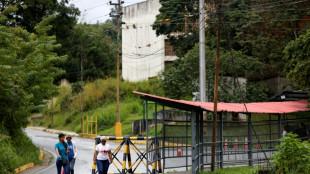 Venezuelan prisoners smile to hear of Maduro's fall
Venezuelan prisoners smile to hear of Maduro's fall
-
Thousands of Irish, French farmers protest EU-Mercosur trade deal
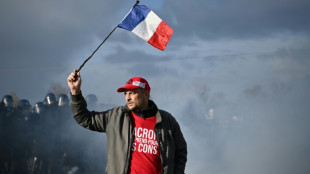
-
 Kiplimo captures third straight world cross country title
Kiplimo captures third straight world cross country title
-
Osimhen leads Nigeria past Algeria into AFCON semi-finals

-
 US urges fresh talks between Syria govt, Kurds after deadly clashes
US urges fresh talks between Syria govt, Kurds after deadly clashes
-
Weekend of US protests after woman killed by immigration agent

-
 Monaco cling on with 10 men to avoid French Cup shock
Monaco cling on with 10 men to avoid French Cup shock
-
Rooney close to tears as brother masterminds FA Cup history

-
 Semenyo scores on Man City debut in 10-goal rout of Exeter
Semenyo scores on Man City debut in 10-goal rout of Exeter
-
Villarreal sink Alaves to stay in La Liga hunt

-
 Bristol, Glasgow reach Champions Cup last 16
Bristol, Glasgow reach Champions Cup last 16
-
Freiburg beat 10-man Hamburg to climb to eighth in the Bundesliga

-
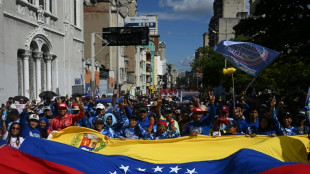 Venezuela loyalists to rally one week after Maduro's capture
Venezuela loyalists to rally one week after Maduro's capture
-
Syrian authorities transferring Kurdish fighters from Aleppo to northeast

-
 Football: Five memorable FA Cup upsets
Football: Five memorable FA Cup upsets
-
Odermatt warms up for Winter Games with Adelboden giant slalom win

-
 Benin showcases culture with Vodun Days
Benin showcases culture with Vodun Days
-
Iran crackdown fears grow as protests persist

-
 Odermatt wins Adelboden giant slalom for sixth World Cup success of season
Odermatt wins Adelboden giant slalom for sixth World Cup success of season
-
Holders Crystal Palace stunned by Macclesfield in biggest ever FA Cup shock

-
 Odermatt wins Abelboden giant slalom for sixth World Cup success of season
Odermatt wins Abelboden giant slalom for sixth World Cup success of season
-
Poland reach United Cup final despite Swiatek loss to Gauff
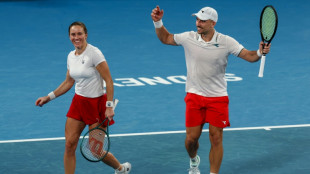
-
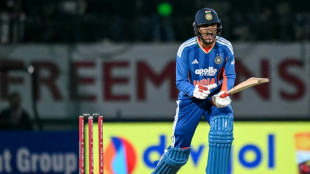 India's Gill calls it 'destiny' after shock T20 World Cup snub
India's Gill calls it 'destiny' after shock T20 World Cup snub
-
'Driven' Vonn storms to 84th World Cup win in Austrian downhill

-
 Syrian army says stopping Aleppo operations, but Kurds deny fighting over
Syrian army says stopping Aleppo operations, but Kurds deny fighting over
-
Thousands of Irish farmers protest EU-Mercosur trade deal

-
 Vonn storms to 84th World Cup win in Austrian downhill
Vonn storms to 84th World Cup win in Austrian downhill
-
Anger over fatal Minneapolis shooting fuels US protests

-
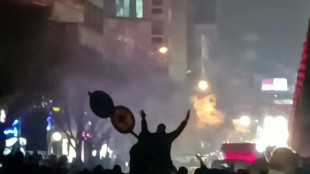 New rallies erupt in Iran as crackdown fears grow
New rallies erupt in Iran as crackdown fears grow
-
Real Madrid not 'kamikaze' with Mbappe health: Alonso

-
 South Africa defends naval drills with Iran, Russia as 'essential'
South Africa defends naval drills with Iran, Russia as 'essential'
-
Alcaraz beats Sinner in sold-out South Korea exhibition match


Memory chip crunch set to drive up smartphone prices
Shoppers could face higher prices for phones, laptops and other gadgets next year, manufacturers and analysts warn, as AI data centres hoover up memory chips used in consumer electronics.
The world's biggest tech companies are ploughing head-spinningly huge sums into building the hardware that powers artificial intelligence tools like ChatGPT.
Their insatiable demand is snarling up a supply chain kept tight on purpose by chipmakers who are keen to avoid price drops that dent profits, experts say.
In 2026, supply chain pressure for memory chips "will be far greater than this year", Lu Weibing, president of Chinese electronics giant Xiaomi, said this week.
"Everyone will likely observe that retail prices for products will see a significant increase," he told an earnings call.
William Keating, head of semiconductor and tech consulting firm Ingenuity, expects the same.
"All companies that manufacture PCs, smartphones, servers etc will be impacted by the shortage," Keating told AFP.
"End result: consumers will pay more."
In high demand are key chips known as DRAM and storage components called NAND, which are found in everyday gadgets but are also needed to help process the vast amounts of data crunched by generative AI.
That's driving up memory chip prices, which in turn is turbocharging revenue for the firms that produce them such as South Korea's Samsung and SK hynix, and Micron and SanDisk in the United States.
"AI-related server demand keeps growing, and this demand significantly exceeds industry supply," Kim Jae-june of Samsung Electronics said last month.
- 'Keep prices high' -
Samsung said Sunday that it plans to build a new semiconductor plant in South Korea to meet the soaring demand, while SK hynix recently reported its best-ever quarterly performance, "driven by the full-scale rise in prices of DRAM and NAND".
Industry analysts TrendForce have lowered their 2026 global production forecasts for smartphones and notebook laptops.
"The memory industry has begun a robust upward pricing cycle," which "forces downstream brands to hike retail prices," TrendForce said.
Cars may also be affected, although Keating noted that a smaller portion of their tech relies on memory chips.
Last week China's largest contract chipmaker SMIC said customers were hesitant to place orders owing to uncertainty over how many phones, cars, or other products the memory chip industry can supply.
The cause of the shortage is two-fold.
AI-driven demand is greater than anticipated, but memory chip makers have also been "drastically cutting" spending on expanding capacity in recent years, Keating explained.
"Keep capacity tight, keep prices high is basically their mantra," he said.
"They've done this deliberately to ensure that there's no repeat of the most recent memory price collapse, which cost the memory makers tens of billions in losses."
Price jumps for memory chips "are huge and the trend is continuing", said Stephen Wu, founder of the Carthage Capital investment fund.
"Consumers and enterprises should expect higher memory prices, longer lead times, and more take-or-pay contracts through at least early 2026," Wu said.
burs-kaf/dan
Y.Zaher--SF-PST




